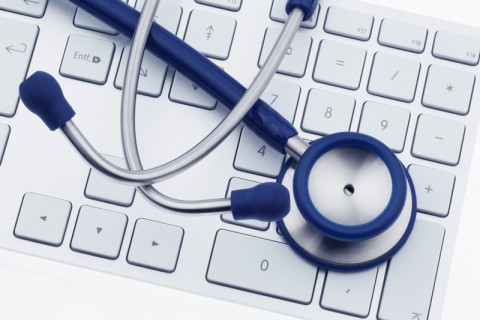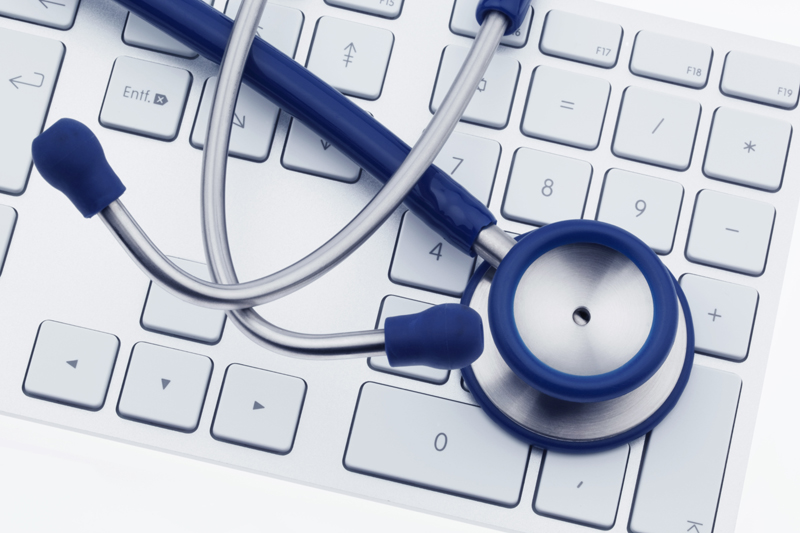 Health informatics refers to the use of information technology in the medical field. In addition to being a key player in the race toward healthcare reform, the term health informatics describes the acquisition, storage and retrieval of healthcare information that is used to promote collaboration among healthcare providers. This specialization is constantly evolving and links information technology, healthcare and communication in an effort to improve the quality of patient care.
Health informatics refers to the use of information technology in the medical field. In addition to being a key player in the race toward healthcare reform, the term health informatics describes the acquisition, storage and retrieval of healthcare information that is used to promote collaboration among healthcare providers. This specialization is constantly evolving and links information technology, healthcare and communication in an effort to improve the quality of patient care.
A Growing Field
The U.S. Bureau of Labor Statistics estimates the employment of health information techs will increase by 22% through 2022, faster than the national average job rate among all other occupations. This increase is due in large part to the necessity for increased health services as the population ages.
Services are expected to generate more claims for reimbursement from insurance companies, and these records, along with electronic health records (EHRs) will help lead to an increased demand for technicians to manage all electronic data in the healthcare industry.
The Centers for Medicare and Medicaid Services “meaningful use” incentive program has also caused the accelerated adoption of electronic health records. As more healthcare providers embrace EHRs, which are designed to specifically store and share patient health information, health informatics specialists will be in high demand.
Benefits of Health Informatics
There are numerous applications for health informatics, most involving the use of computers to store and disseminate information and track and analyze data. These applications can offer significant benefits for several healthcare professionals, such as patients, doctors, insurers and administrators.
Records are more Accessible
Health informatics streamlines medical records making them more easily accessible. No longer do physicians have to order paper copies of a new patient’s medical history and hope they can easily read them when they arrive. In addition, all records are available quickly and intact. Rather than having to wait for someone to deliver them, or risking they receive incomplete records, doctors can be assured they will collect all records in a timely manner.
Answers are a Click Away
There is a ton of medical research and information available, but some physicians may be busy and not have time to review everything. Health informatics uses electronic systems to track medical research and puts this research at a physician’s fingertips. By simply typing in a symptom, a doctor can retrieve the latest news and research in just a few seconds.
Patients as Advocates
Another one of the benefits of health informatics is it allows patients to take charge of their own health and care. With more access to information, patients can be proactive and identify early signs of health problems, seek preventative care, assess better treatment options, monitor their health and ask more informed questions.
Health Informatics Careers
There are a number of emerging career opportunities within the health informatics industry:
Health Informatics Consultant
The job of a health informatics consultant is primarily to keep overhead costs low while ensuring a facility is meeting upcoming federal mandates. Specialists are often involved in a variety of tasks such as installing software and upgrading networks, troubleshooting systems when necessary and training teams.
While consultants have not traditionally been required to obtain advanced degrees, it is becoming more common for them to hold a master’s degree because of the increased demand for the position. Salaries for this specialty can vary depending on education and geographic location, but according to the American Health Information Management Association (AHIMA), annual salary is typically in the upper $80,000s.
Health Informatics Director
Informatics directors integrate and organize data by combining their people skills and love of technology. They are generally responsible for training teams on new technology, managing protocol changes with stakeholders, administration and staff and analyzing and alleviating any technology issues.
Directors typically require a master’s degree, though some who have gained extensive experience in the field may only require a bachelor’s degree. The AHIMA estimated health informatics directors earn roughly $80,000-$100,000 annually.
Nursing Informatics Specialist
Nurses are generally at the forefront of patient care and are often in charge of creating and carrying out patient care plans. This is why some healthcare facilities are seeking nurses that are interested in technology to fill emerging health informatics jobs. A nursing informatics specialist can work directly with other nurses and healthcare providers and train them on record-keeping protocol, reducing redundancy and inaccuracy in patient care plans and analyzing the logistics of technology in patient care.
Nurses typically need at least a Bachelor of Science in Nursing (BSN), and experience working with EHRs. Because the job is highly specialized, some employers may require a Master of Science in Nursing (MSN) with a specialty in Health Informatics, Quality Management or Healthcare Management.
Health Informatics Specialist Career Path
Health information specialists generally require at least a post-secondary certificate or associates degree to enter the field. Programs typically include courses in anatomy and physiology, health data requirements and standards, medical terminology, classification and coding systems and healthcare reimbursement methods. Also, many employers may require professional certification.
Candidates who are interested in following this career path should have strong analytical skills, integrity, interpersonal and technical skills and be detail oriented.









